|
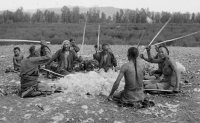 More than 1000 census takers with blue briefcases and with ties are trying to visit every resident of Tuva during these 11 days. 80 years ago, one of the strongest scientists-statisticians, professor of Moscow finance institute, Pavel Petrovich Maslov, spent a year and half on the same project. The doctor of economical sciences took the proposal to carry out a combination demographic and agricultural census in Tuvan People’s republic very seriously. In six months, he learned the Tuvan language, read everything that was ever written about the remote Uriangkhai, and went to Tuva. More than 1000 census takers with blue briefcases and with ties are trying to visit every resident of Tuva during these 11 days. 80 years ago, one of the strongest scientists-statisticians, professor of Moscow finance institute, Pavel Petrovich Maslov, spent a year and half on the same project. The doctor of economical sciences took the proposal to carry out a combination demographic and agricultural census in Tuvan People’s republic very seriously. In six months, he learned the Tuvan language, read everything that was ever written about the remote Uriangkhai, and went to Tuva.
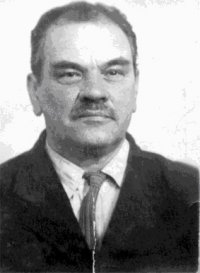 In 1930, Maslov and his Tuvan guides visited every yurt and spoke to every sheep herder, clarifying the composition of the family, how every family member participates in the household-farming chores, what belongs to the family, what they borrow from neighbors, and whether they bring in hired workers. The result of the year and half of wandering and questioning is a voluminous book with a dark-green binding, in Russian and Tuvan languages, which is now kept in the Central State Archive of Republic Tuva. In 1930, Maslov and his Tuvan guides visited every yurt and spoke to every sheep herder, clarifying the composition of the family, how every family member participates in the household-farming chores, what belongs to the family, what they borrow from neighbors, and whether they bring in hired workers. The result of the year and half of wandering and questioning is a voluminous book with a dark-green binding, in Russian and Tuvan languages, which is now kept in the Central State Archive of Republic Tuva.
The scientist became so immersed in Tuvan reality that he also wrote a literary book “The end of Uriangkhai. Travel notes.” , which was published in 1933 in the “Molodaya Gvardia” publishing. In it, with humor, numbers and love, he tells about the census campaign, about the lives of Tuvan nomads, about their way of life.
Maslov calculated that all the Tuvan households moved 581 thousand kilometers every year, which, in average, was 42 km per household. Considering that a household moves from one camp to another four times a year, one move then is about 10 km “with change”. The Moscow professor also traveled to all the gold prospectors, hunters, fishermen, and carefully described their lives. 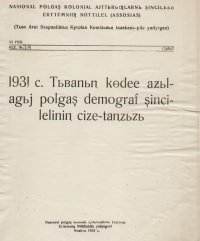 In Todzha he met with the head of a Russian fishing artel. He was 102 years old. The old man was making a very long sweep net made of threads of total length of 26 km, and the seine should have been 120 meters long. He was also teaching Tuvan fishermen. Pavel Maslov’s book was published in the 5th volume of Sergei Shoigu’s anthology “Uriangkhai. Tyva Depter.” In Todzha he met with the head of a Russian fishing artel. He was 102 years old. The old man was making a very long sweep net made of threads of total length of 26 km, and the seine should have been 120 meters long. He was also teaching Tuvan fishermen. Pavel Maslov’s book was published in the 5th volume of Sergei Shoigu’s anthology “Uriangkhai. Tyva Depter.”
This is how the statistician describes the complicated job of a census taker in his book: “The census of nomadic households turned to be much more complicated that I imagined at the outset. We met with innumerable obstacles along the way. True, the sumon head always showed us very exactly the locations of the arbans. True, we were successful in not missing a single yurt, but in our time allowance, every new search significantly disrupted all the previous plans. And that was only half the problem. 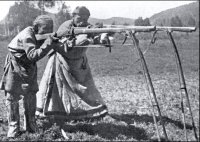 Any Tuvan household, which we were expected to describe thoroughly, almost like a monograph, hid within itself a whole slew of unexpected subtleties. Any Tuvan household, which we were expected to describe thoroughly, almost like a monograph, hid within itself a whole slew of unexpected subtleties.
When describing various household and farming transactions, the most difficult for the registrars was the area of social arrangements in which, next to cases of outright exploitation or obvious dependent condition, complicated forms were found, veiled in obsolete ways of clan existence. In the majority of cases, when examined in detail, these cases, which carried the hallmarks of primitive collectivism, turned out to be in reality more or less hidden forms of antagonistic relationships. Of course, there were also cases, and among close relatives, where the entire transaction appeared to be a consequence of wholesome organization of work. But it has to be noted that that in that case, the “clan system’ was only a small part of it, because transactions of this type involved only a small part of the production process, and did not involve the farm itself. The most frequent were cases of collective moving, because it demanded a large number of oxen. The households of poorer groups would lend their oxen one to another, and travel in turns. To this category belong situations when a household which owns a plough, but has no oxen, gets together with another, which has no plough but owns oxen.
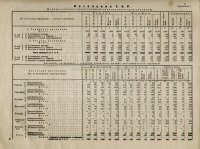 Cases of “working together”, as a rule, are not met with in a pure form. Widespread types of “help” with tasks that demand large work expenditure (for example, beating wool), definitely do not fit into this category. Usually a well-to-do household prepares large quantities of araka (milk vodka), kills a ram, and invites neighbors for wool beating and felt rolling. In this case the neighbors perform work which would otherwise have to be done by hired labor. Poor neighbors come to the wool-beating to get a good meal and to show respect to the rich householder. Naturally, the poor household will not need “help” because there is not that much to do, and there is nothing to feed the neighbors with. Cases of “working together”, as a rule, are not met with in a pure form. Widespread types of “help” with tasks that demand large work expenditure (for example, beating wool), definitely do not fit into this category. Usually a well-to-do household prepares large quantities of araka (milk vodka), kills a ram, and invites neighbors for wool beating and felt rolling. In this case the neighbors perform work which would otherwise have to be done by hired labor. Poor neighbors come to the wool-beating to get a good meal and to show respect to the rich householder. Naturally, the poor household will not need “help” because there is not that much to do, and there is nothing to feed the neighbors with.
“Working together” with equal contributions of work is, in this way, seen very rarely. 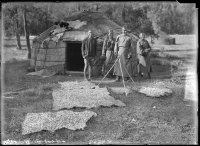 Often, if reporting such an arrangement, on further questioning the registrar would manage to clarify that the work of one of the parties would be exchanged for working livestock, inventory, or food products, or seeds. Often, if reporting such an arrangement, on further questioning the registrar would manage to clarify that the work of one of the parties would be exchanged for working livestock, inventory, or food products, or seeds.
It is completely obvious that in those cases the relationships are of a totally different nature, and have nothing in common with simple “working together”.
From day to day, team members come to me for help in analysis of more complicated incidents, which would not be out of place in an old regime textbook of civil law. Take, for example, Samba-Lyundup. He always finds the most convoluted forms of social transactions. He returns from a remote aal, squats down next to me, and with an indifferent expression some notes with undecipherable markings. He digs in them for quite a while, tries to remember something, then he turns expressionless eyes to me.
- Tergiilekchi (chief), tell me, how to write down this incident. Pancha went hunting with a gun which belongs to Karanek. He gave 20 squirrels to Karanek for that. But the neighbors say that he did not give him the squirrels for the gun, but for half a shan (area measure) sowed with millet. Karanek does not sow millet, and Pancha insists that he had sown it himself.
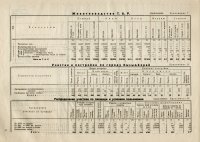 Now Samba-Lyundup shakes out his tobacco pouch. Now Samba-Lyundup shakes out his tobacco pouch.
- While I was trying to figure it out, they smoked all my tobacco. Two days I had to live in that yurt,” – he says.
I know that the best thing to do would be to go there myself. But there just is not enough time. So because of laws not thought up by Tuvan council, through the headman we have to call both Pancha and Karanek. As a result, every morning I see a crowd of Tuvans who had been called for questioning, around my tent, looking with bewilderment at these people who are for some reason interested in their household affairs.
According to the data of the census, collected by Pavel Petrovich Maslov, in Tuvan People’s Republic in 1930 lived 82 183 people, of which there were more men – 42 457. The native population counted 64 911, that is 78.9% of the population.
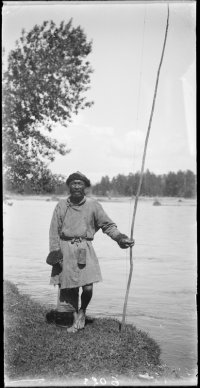 Horses, in all forms of households and ownership there were 105 265, sheep – 529 780, goats 291 848, deer – 871, and 1343 swine. Horses, in all forms of households and ownership there were 105 265, sheep – 529 780, goats 291 848, deer – 871, and 1343 swine.
(Many thanks to the Central State Archive for help in studying the documentation of the 1930 census.)
|
|
